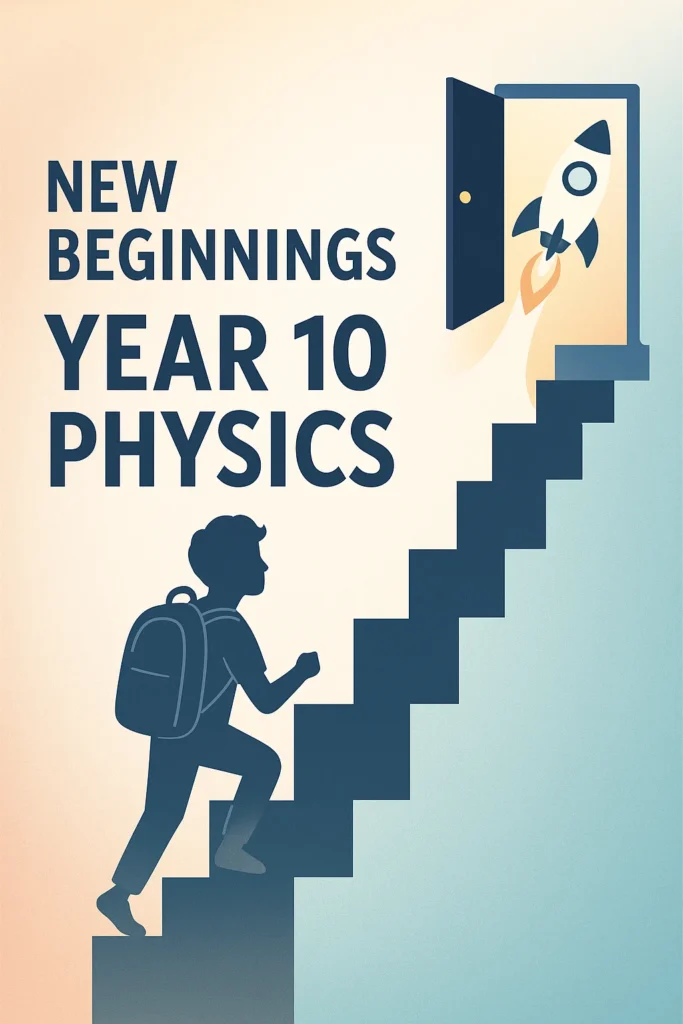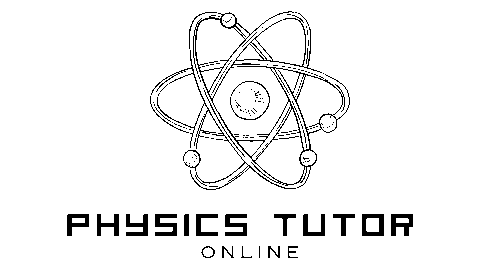Starting Year 10 Physics: Building Strong Foundations.

Moving into Year 10 is exciting – it’s the first time physics feels like a proper subject in its own right. Up until now, you’ve probably studied physics as part of “general science,” and sometimes it can feel like one big blur of biology, chemistry, and physics muddled together. Now, you’re stepping into a more focused, structured course. The challenge is clear: if you want to make Year 11 revision easier, the habits you build now will make all the difference.
Why Year 10 Matters So Much
Physics is a subject that builds layer upon layer. Think of it like a house: the bricks you lay this year are the foundations that will hold everything else in place. If you leave gaps or if the foundations are shaky, the entire structure will feel unstable later. Students often realise this too late – suddenly, in Year 11, they find themselves panicking because they never really understood energy transfers or forces back in Year 10.
Furthermore, I always say to my students, “Physics doesn’t forgive gaps.” Unlike some subjects where you can blag a bit, physics has a way of exposing when you don’t quite get it. The good news is, if you tackle the small chunks now, the later topics won’t feel overwhelming.
The Most Common Mistake in Year 10
However, a mistake I see a lot is students thinking Year 10 is a “practice year” and that the real work starts in Year 11. That’s simply not true. Everything in Year 11 depends on how well you’ve nailed Year 10. If you coast now, you’ll double your workload later.
So, treat every lesson and every small piece of homework as a stepping stone towards the bigger picture. It may feel like ages until exams, but trust me, the time flies.
Smart Study Habits for Year 10 Physics
Here are some proven strategies that will save you stress later:
1. Use Active Recall Instead of Just Reading
It’s tempting to re-read your class notes and feel like you’ve “revised,” but your brain doesn’t work like that. Instead, close the book and see if you can explain a concept out loud without looking. Can you state Newton’s Laws from memory? Can you explain them in your own words? If not, you’ve found a gap to fix.
2. Short, Regular Sessions Beat Cramming
Physics is best learned in small, regular doses. A 20-minute review after school a couple of times a week will beat two hours of cramming before a test. Your brain likes repetition – drip-feed the content rather than drowning in it all at once.
3. Start a Physics Journal
One of the best ways to stay on top of physics is to keep your own “Physics Mastery Journal.” After each lesson, write down three key things you learned that day, in your own words. This isn’t copying – it’s translating teacher-speak into student-speak. By the end of Year 10, you’ll have your own personalised revision guide.
4. Learn the Vocabulary Early
Physics has its own language: words like displacement, resultant, ionisation. If you don’t learn them properly now, they’ll trip you up later. Keep a glossary and test yourself on the terms regularly.
5. Ask Questions, Even Small Ones
A quick “Sir, why does it do that?” now can save you hours of confusion later. No question is too small. Year 10 is the time to be curious and get things clear.
What Good Physics Learning Looks Like
If you’re learning well in Year 10, here’s what it should look like:
- You can explain today’s lesson without looking at your book.
- You can solve a practice question without panicking.
- You’re making connections between topics (e.g., realising that forces and energy aren’t separate, they link together).
The Payoff for Year 11
Imagine this: it’s the start of Year 11, and instead of scrambling to remember what you learned 12 months ago, everything feels familiar. That’s the power of starting well in Year 10. You won’t be playing catch-up – you’ll be consolidating and strengthening.
Key Takeaway
Year 10 is not a warm-up. It’s where the game begins. The habits you build now – active recall, short regular study, asking questions – will save you stress in Year 11 and give you confidence heading into your GCSEs.
Next step: Download my free GCSE Physics Revision Starter Guide and start building your own Physics Journal today.
Finally, refer to the past papers or notes for your exam board.
And don’t forget to check your specification. Edexcel, AQA, or Cambridge
